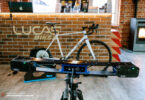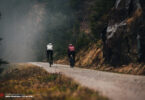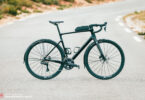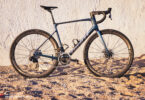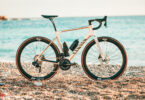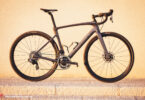Standing still is a foreign concept to racers. Especially to Sebastian Breuer. The German and European XCM champion isn’t afraid of changing things even when they’re going well. In our conversation with Sebastian, you can find out everything about his switch to gravel riding, what he thinks about the gravel scene and whether moustaches are a requirement.
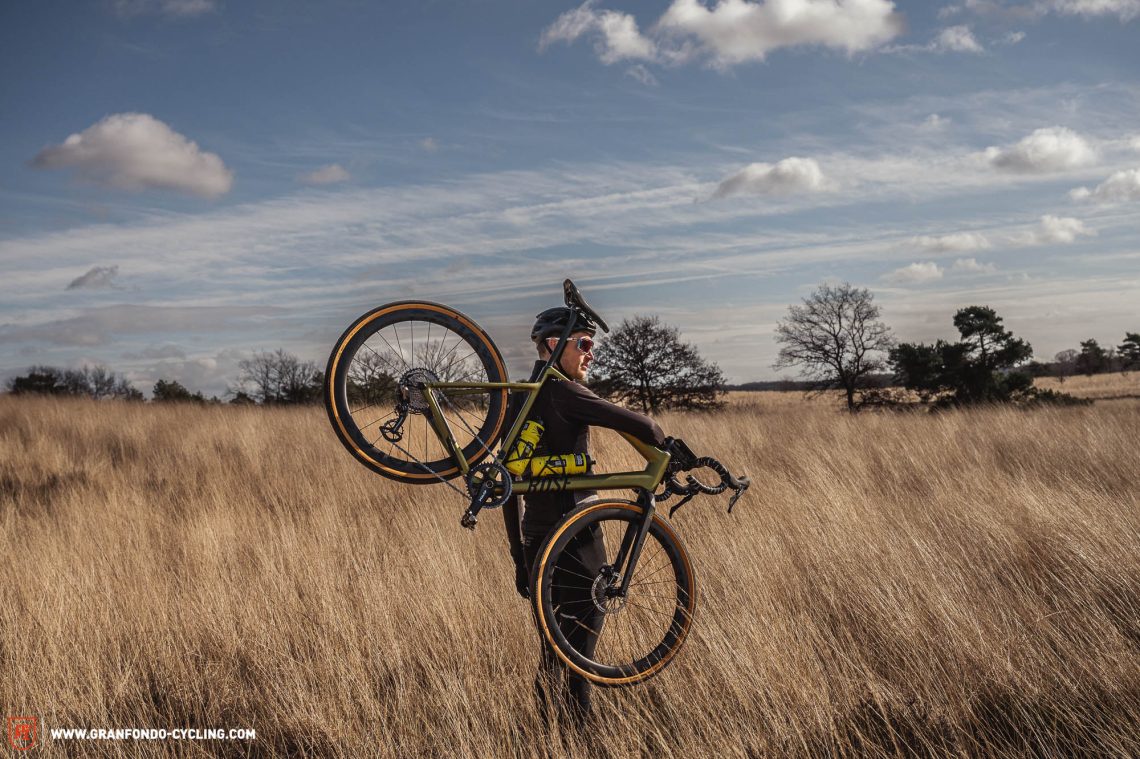
The ground is soaked through from the rain, it’s muddy and then rocky. The climbs and corrugations are exhausting, but you’ve got to save your energy for the final push. Sebastian Breuer wipes the encrusted dirt from his face. But he can’t wipe off the grin. He finishes The Traka in Girona in just over 15 hours, covering 360 km and 5,000 metres of altitude. Just a few weeks later, he takes third place in Poland at the first ever UCI Gravel World Series – thus qualifying for the World Championships. Just one day earlier, he took the time to chat with us, talking about how he got from mountain biking to gravel and the development of the gravel scene. Without giving away anything, we’re sure many of you will find his insights very enlightening!
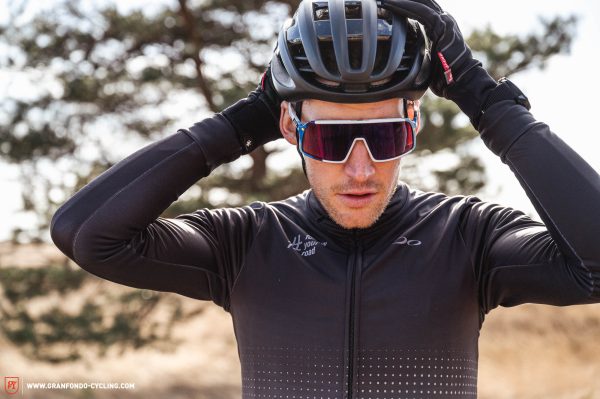
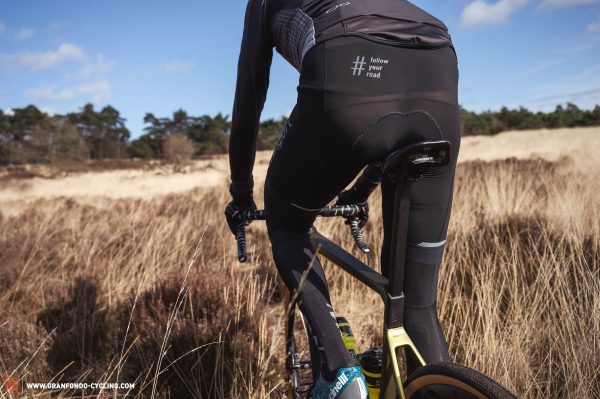
Always have fun – And that doesn’t rule out determination!
Sebastian Breuer’s career reads like a picture book: joining a cycling club at age 12, participating in his first road races, becoming a rider in the German national team and the U23 junior team with international aspirations. Then he proves his true talent, switching from road to mountain bikes and making his crowning achievement: the 32-year-old raced for the German national team at the Mountain Bike World Championships four times, winning in the German and European XCM Championships in 2021.
Right. Seems like a straight and narrow career. But then he drops a bomb: right at the beginning of our conversation, Sebastian tells us that he isn’t a professional cyclist. What?! Despite being so successful? But if you look at his day-to-day life, that question answers itself and raises another: how could he be a pro rider? After all, he’s got a full-time position at the tire manufacturer Schwalbe, where he acts as a liaison manager for professional athletes, be it for communications & relations, equipment, social media or performance in general.
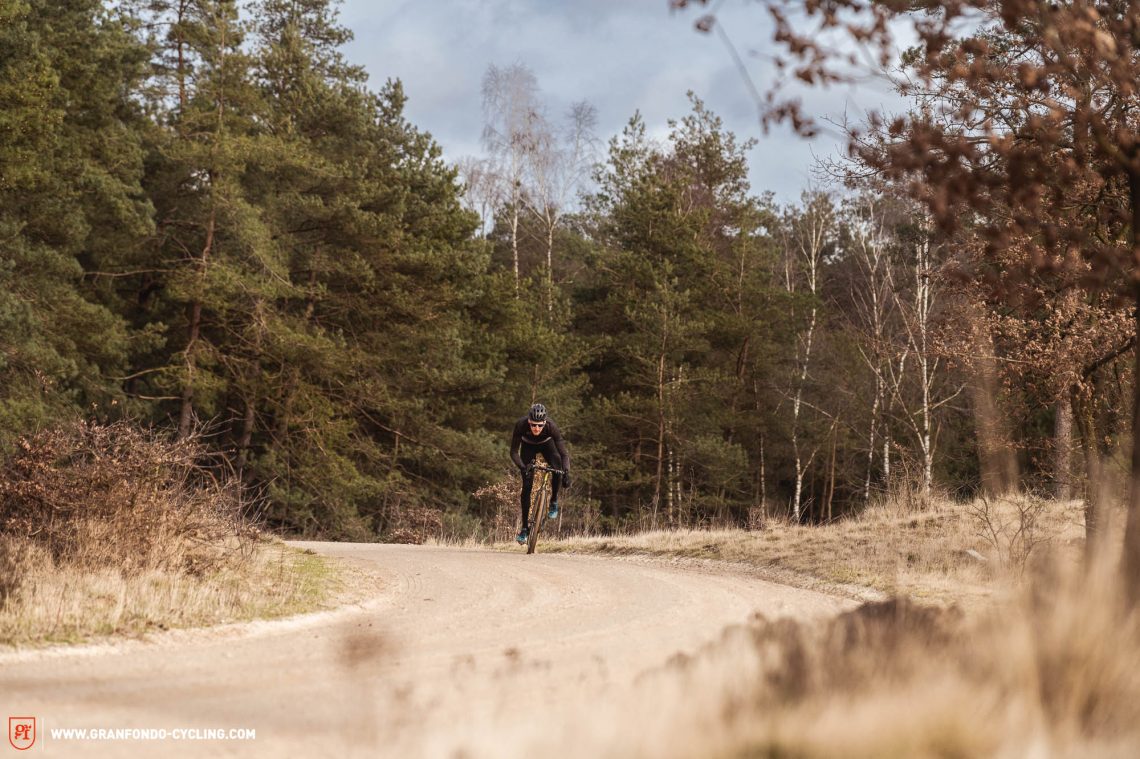
Never get tired of new experiences and bigger challenges
Sebastian’s motto, which you can find on the website of his start-up Lena’s Coffee Brand
So, he doesn’t earn his living from professional sports. We want to know more. But let’s take a few steps back. Couldn’t he have earned enough as a qualified radiologist, the exams for which he completed in 2014? Sebastian tells us, “during my work in the medical field, I quickly realised that a 50-hour week and being on call wasn’t for me. I always had fun on my bike and somehow also saw myself drawn to it as a vocation. So, I eventually became a product manager at Riese & Müller and now at Schwalbe.” However, it’s about more than just two wheels for him: “Personal relationships matter a lot to me.” And Sebastian doesn’t just mean customers and athletes, as he explains to us: “Despite the demands of my job and sport, I simply need enough space and time to spend at home with my wife.” Sebastian also seems to be a connoisseur of sorts, founding Lena’s Coffee Brand (named after his dog 😉) as a “side hustle” together with his wife Christina.
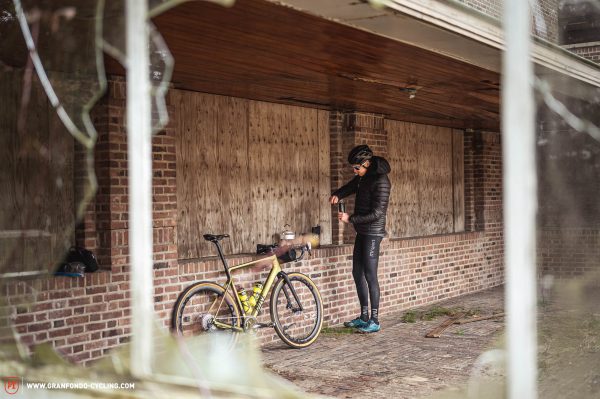
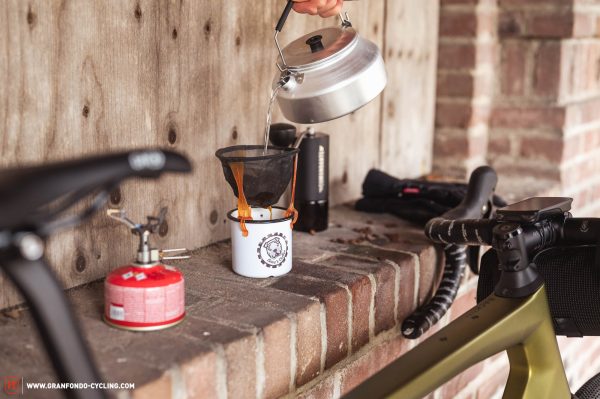
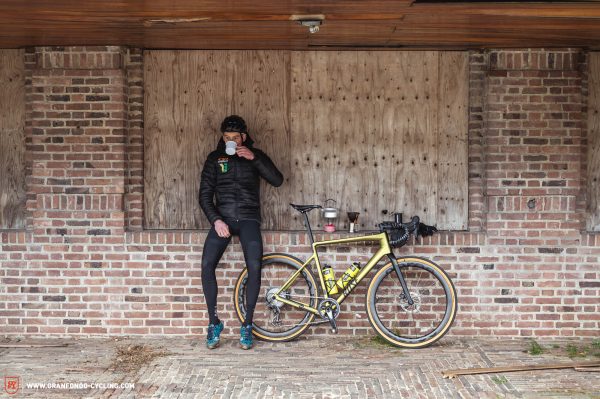
The call of the wild
Why did Sebastian switch from MTB to gravel? At a moment when he was riding a wave of success, after winning the German and European XCM Championships? The likeable endurance athlete, who everyone calls Seb for short, immediately answers the question: “After 15 years of competitive sports, I’ve simply achieved my personal goals with the German and European Championship title and representing the national team at four World Championships.”
At some point I noticed that there is a life beyond the track.
There are other reasons, too, as Seb explains: “At some point I noticed that there is a life beyond the track. During my marathon races it was always just: put your head down and give it all you’ve got. Everything beyond the track faded out. Whenever I read or see things about regions where I’ve already raced, I realise that these are all white spots on the map for me.” That’s hefty. Seb continues: “I never got to know these places, the people and the spirit. I started missing the allure of adventure.” And riding long distances. Because even if Seb keeps his name short, he prefers his races to be long.
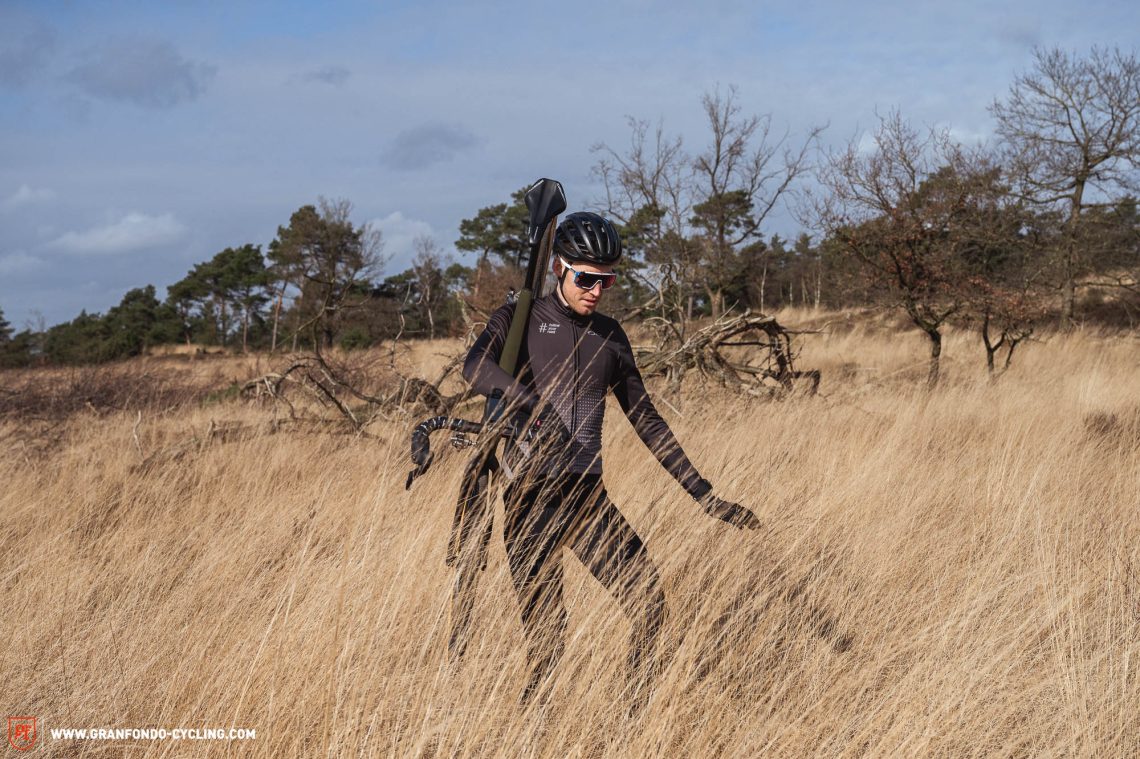
Adventure and wilderness – of course, you can experience this on cycling trips. But would that be enough for an ambitious athlete like Seb, who’s ridden fast and long his whole life, surrounded by other athletes?
From mountain biking to gravel riding
Seb then mentions another important point in his career: “For the 2021 European XCM Championship, I had received confirmation from the German Cycling Federation that I’d be able to compete.” Unfortunately, Seb breaks his foot during training in the winter before the European Championships, but he quickly manages to get back in top shape. When he enquires about his national jersey, which German participants in the European MTB championships have to buy themselves, he meets a bitter experience: “Two weeks before the start of the European Championships, I was told that they had decided to pick a different rider.” Without further ado, Seb gets on his bike and rides for 2 hours to clear his head. And thanks to a wild card from the organiser of the European Championships, he still manages to compete in the race. Without the national jersey. But he takes home the trophy at the end of the race – the German Cycling Federation must be kicking themselves. 😉
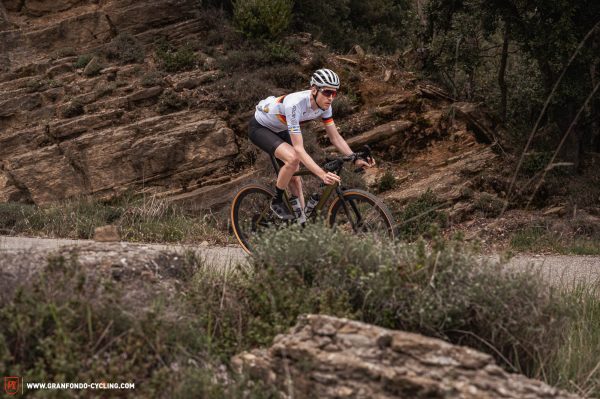
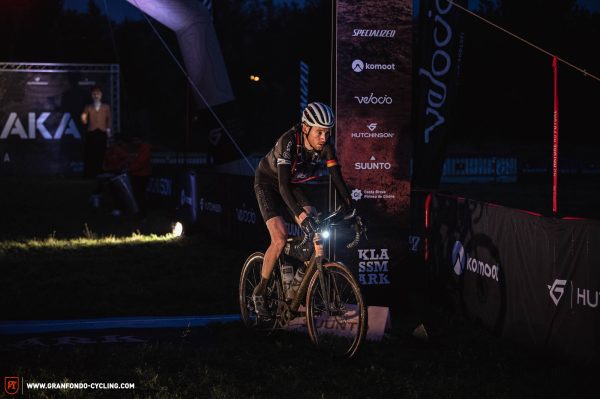
Now you could think that winning a European XCM Championship title would be the crowning achievement and overshadow the following 2021 German Championship. But Seb explains how badly he wanted to win the German Championships, even more so than the European Championships a few months earlier: “Winning the German Championships had been in my head for many years. The year before, I managed to get second place, and I knew I had to get the title. I asked myself what I needed to change. I called in a coach and focused all my energy on the German Championships, I even prioritised them over the European Championships. I never thought that I would claim both titles.”
Amazing… set the goal of winning the German Championship title, compete, and win! What if it didn’t work out? “Then I would have tackled it again next year, I wanted to achieve this goal. And put an end to the mountain biking chapter,” he says.
It then became increasingly clear that I could also find sporting challenges in the gravel and bikepacking scene. That’s the direction I wanted to go.
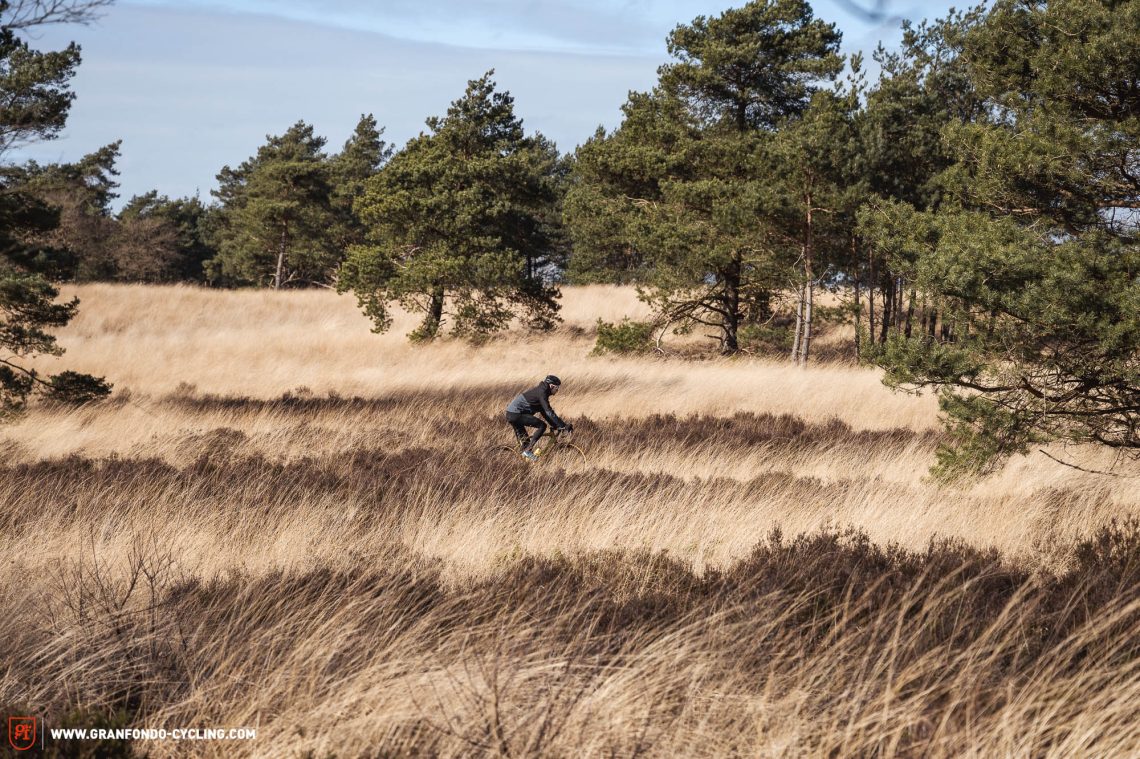
The MTB marathon era ends, but Seb remains fascinated by long distances and changing terrain. How so? “While training for the German Championships, I rediscovered my old passion for bike touring and rode my bike from Oslo to Italy in cold conditions. I then started realising that I could also find sporting challenges in the gravel and bikepacking scene. That’s the direction I wanted to go.”
Transformation is probably best done on two wheels.
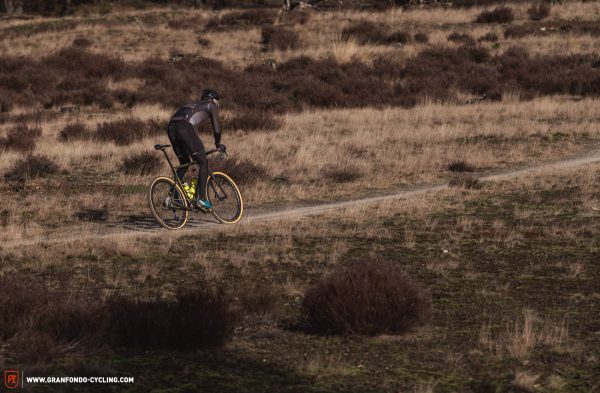
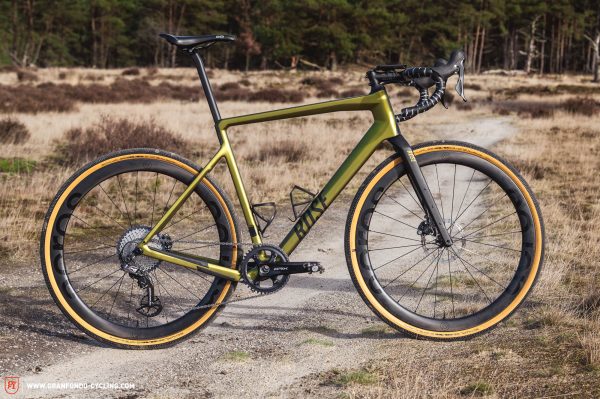
Free of conventions
Of course, gravel is a hot trend right now. According to Seb, however: “It’s not just about the sport per se. Rather, it’s the spirit that’s so appealing. Riding all day long with other racers, being outside somewhere, on varying terrain where nature dictates the conditions… just being free.” The word free piques our interest, so we dig a little deeper. For Seb, it’s an important aspect that UCI hasn’t yet got (all) their fingers in the gravel pie. He wants to get away from regulations the way he experienced them in the MTB scene. “The UCI often makes it difficult for athletes as functionaries don’t always act in their interests.” For example, Seb mentions the difficulty in planning if dates, conditions and regulations for tournaments aren’t set far enough in advance.
It’s not just about the sport per se. Rather, it’s the spirit that’s so appealing.
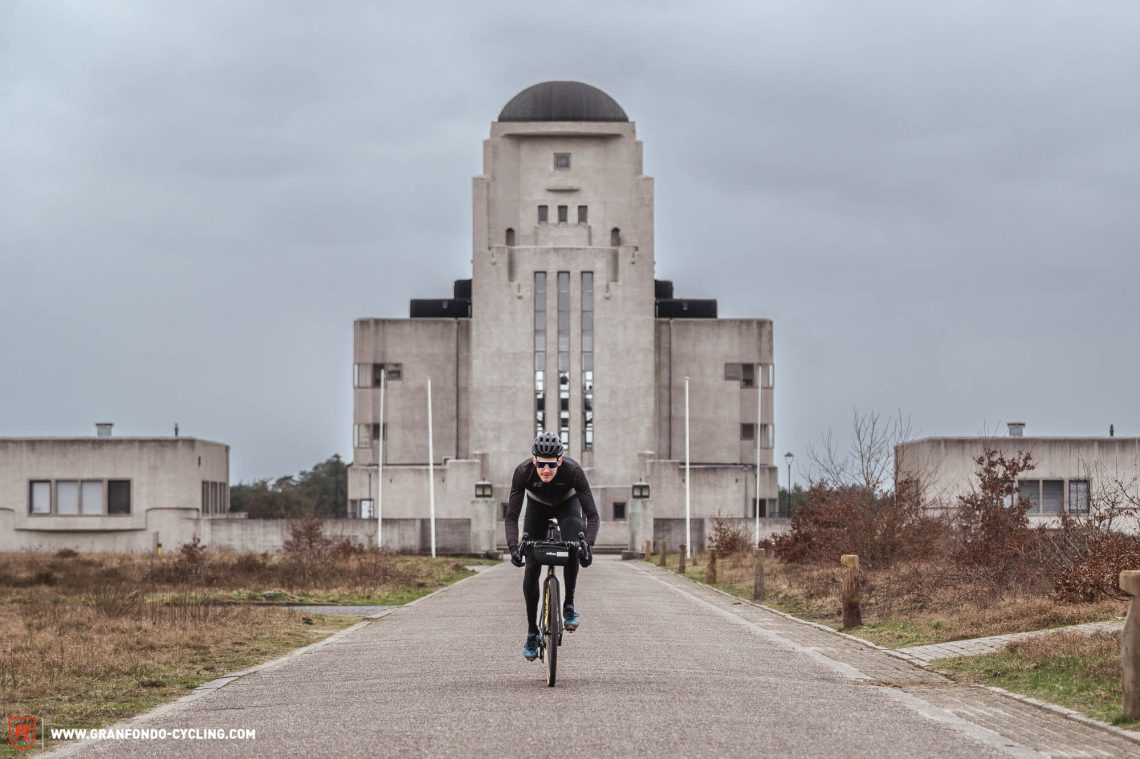
Even though the Gravel World Series, which was introduced in 2022, is the first UCI race series to be launched on gravel, Seb says it’s not yet that high on their priorities and less strict. The series is open to all, hobby and professional riders, it allows any kind of bike and serves to qualify for the Gravel World Championships. Seb wants to try to qualify in Poland, as the fastest 25% of all participants in each series can secure themselves a spot in the World Championships. “If I qualify, it’s a nice bonus,” he says the day before standing on the podium. Sure, because Seb has completely different goals in mind.
Unbound, Badlands… – Is the moustache a requirement and where does he see himself going in the gravel cosmos?
The cradle of gravel is in the Midwest of the USA, where races like Unbound Gravel (formerly Dirty Kanza) have regularly been putting the whole region into a state of ecstasy for the past 15 years. It generates a kind of excitement that we’ve never seen in Europe before. In Kansas, the small venue of Emporia is turned on its head during the Unbound Gravel race. You’ve got posters of past winners hanging on street lights, like the Walk of Fame, everyone is on the streets and cheering, the entire infrastructure is geared towards the event. They cheer for everyone, whether they’re stars, amateur athletes or part of the support crew. And the rider scene couldn’t be more colourful: from jerseys to flapping t-shirts, unbuttoned shirts, braids and flying hair, socks that don’t all have the perfect length, long beards and moustaches, you see it all.
In the USA, the girls and boys simply know how to market themselves, live the spirit and simply live it up.
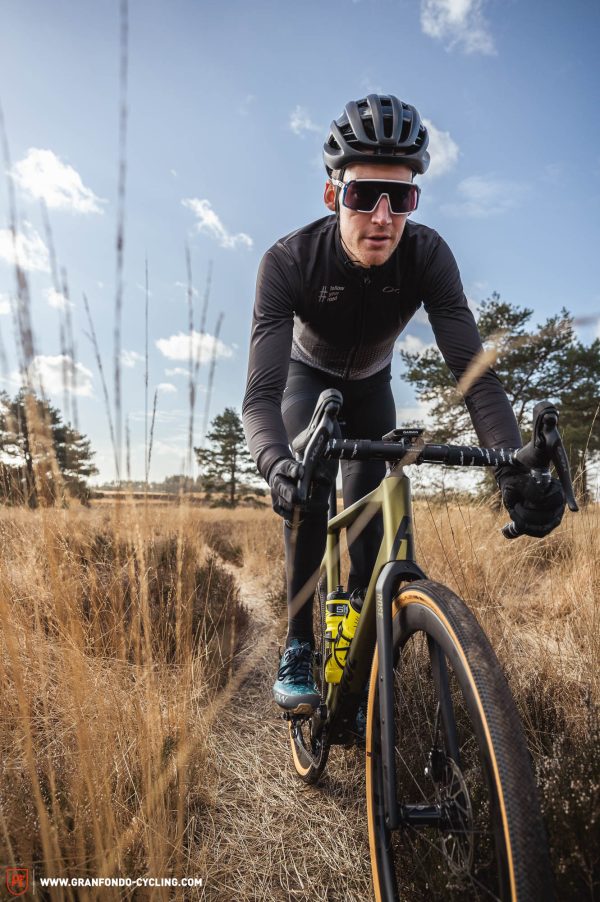
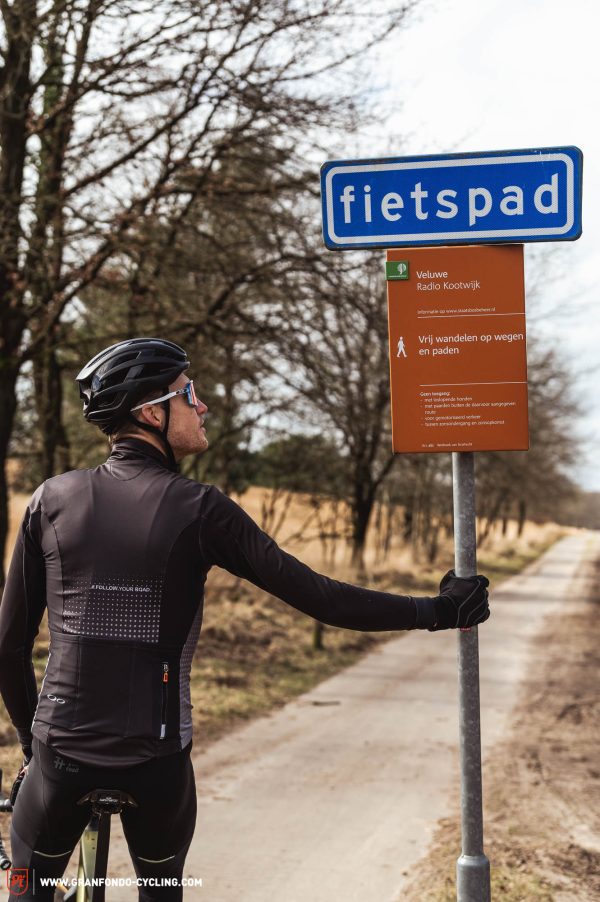
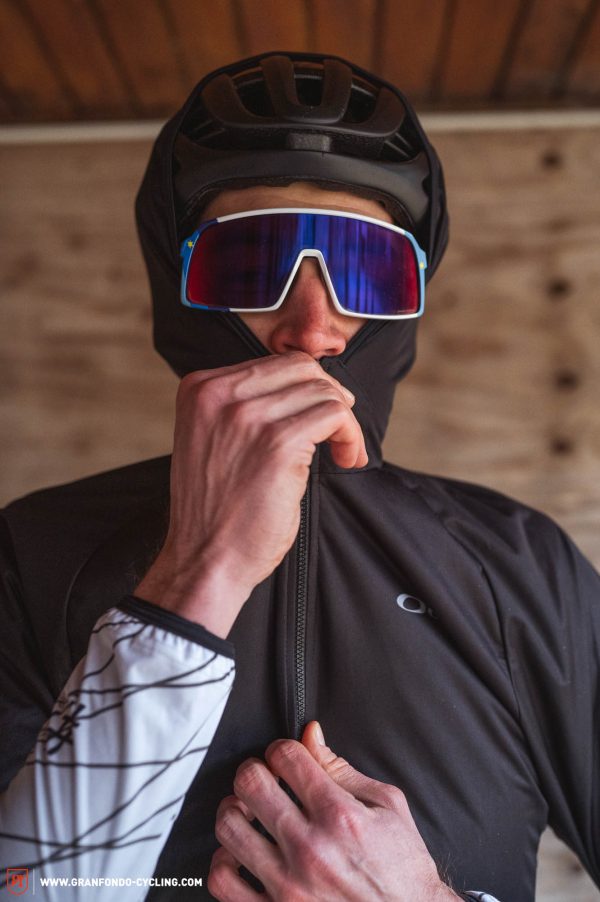
Even if the gravel scene is now spilling over to Europe – the vibe is completely different in the West of the USA. It’s just the nature of things: while we deliberately search for off-road routes away from asphalt roads, they just ride everything that gets thrown at them. Besides busy motorways, all they have is gravel, muddy ruts, corrugations, desert sand, and dirt – and they love it. “Of course, it’s also about extreme performance, but they’re not quite as uptight about it,” Seb explains. “Especially in Germany, we’re more stereotypical. I often catch myself first having to do my intervals before enjoying a cup of coffee at the campfire. In the USA, the girls and boys simply know how to market themselves, live the life and simply live it up. And if you’re as talented as Lachlan Morton – well, then you’re the king.”
If we would all wear flannel shirts or moustaches, it would remind me of my cycling club days from the past, when you would almost get marginalised if you didn’t wear a proper jersey.
We want to know if Seb is also going to grow himself a moustache. “No, I don’t have much time to think about style. And that would take me back to the thing I’m trying to escape, compulsively conforming to an image and following a trend… If we would all wear flannel shirts or moustaches, it would remind me of my cycling club days from the past, when you would almost get marginalised if you didn’t wear a proper jersey. Ultimately, this sport is about diversity and freedom.”
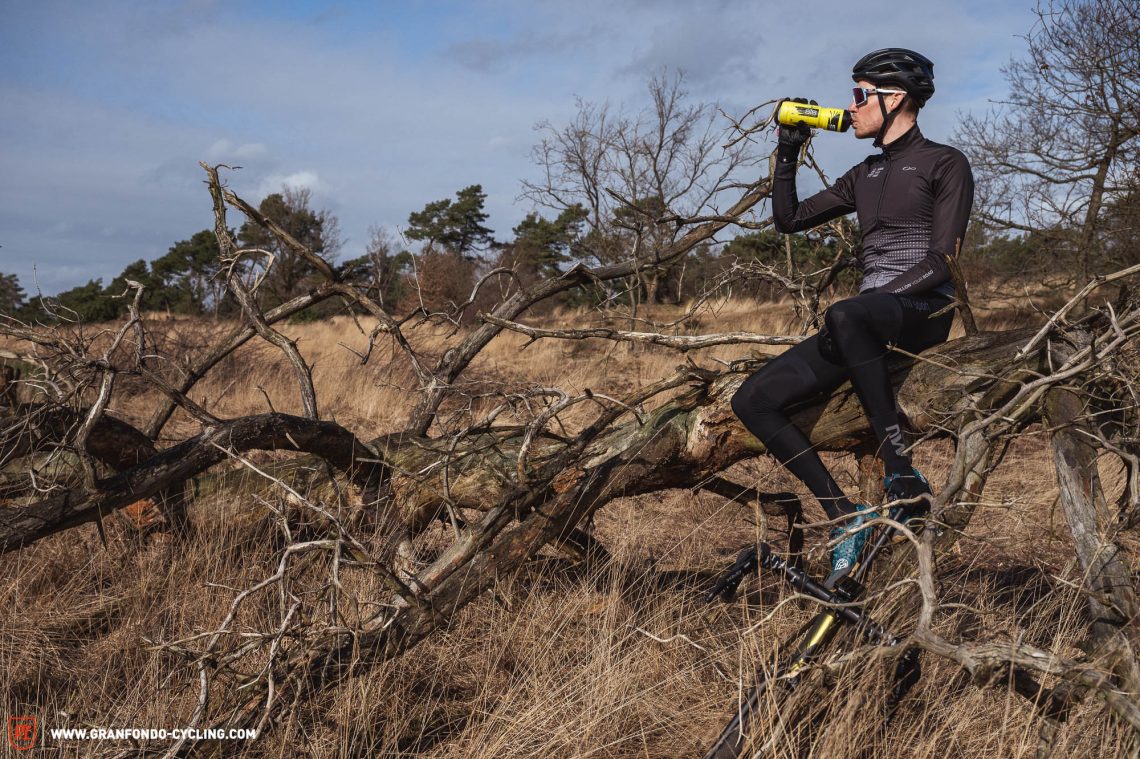
Ultimately, this sport is all about diversity and freedom.
There is that word again, freedom. Will the gravel scene remain free of conventions, when more and more professional athletes from other disciplines such as road biking, cross-country or mountain biking are being drawn to it? Seb sees the development as rather problematic: “It’s great that there aren’t any conditions and everyone can participate: bike packers, touring cyclists, gravel riders, roadies, long-distance MTBers and hobby riders who want to explore new regions or simply want to race. It also gives them the chance to be on the starting line with pros like Peter Sagan. But it’s becoming increasingly professionalised and more and more big names are taking part. I believe that the gravel sector will also start being more heavily regulated in the future. For example, the Unbound Gravel has already become a professional event, and it’s more about winning, not about the event itself, which it was when it started. Even I will have a hard time keeping up, since I’ve got a full-time job. In contrast to the professionals, who’ve even started testing their gravel race performance in the wind tunnel.”
Wait a minute, is Seb questioning his own recipe for success? After all, he participated in the Unbound Gravel race for the first time this year and finished in the top 20 together with professionals such as Ian Boswell, Peter Stettina, Laurence ten Damm and Paul Voss.
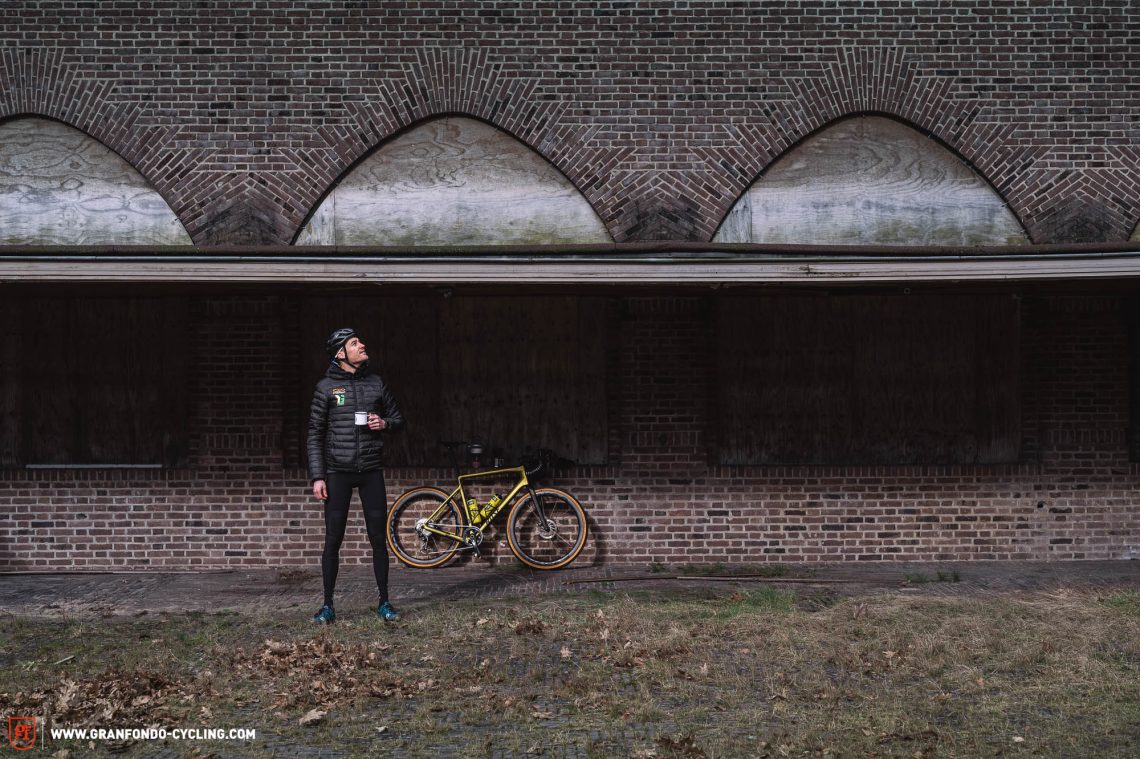
But perhaps it’s this mix of different characters and backgrounds that makes gravel what it is, as Seb explains: “Like me, non-professionals can identify with it and find an incentive to take part. After all, a rigidly structured training plan like that of Jan Frodeno, for example, doesn’t line up with the reality of most people.”
Goals are great – They’re even better if you don’t obsess about them
We ask ourselves: as an ambitious non-professional, how do you afford taking part in such races – would prize money make sense? “It’s all about prestige. Prize money… hmm, it will probably come eventually. But it wouldn’t be very conducive, because it would make it all even more commercial, and we know what the consequences will be. As athletes, we finance ourselves with sponsorships, which are sorely needed: for equipment, travel expenses, supervisors, media work, photographers, etc.” In this case, too, Seb emphasises the worth of personal, mutually appreciative contacts, like the good relationship he’s established with the well-known photographer Nils Laengner (who also took many of the photos you see here), as well as with athletes at races. He would like to keep this collegial atmosphere in the gravel scene, instead of just going to the races like a stranger, competing and jetting back home as soon as it’s done.
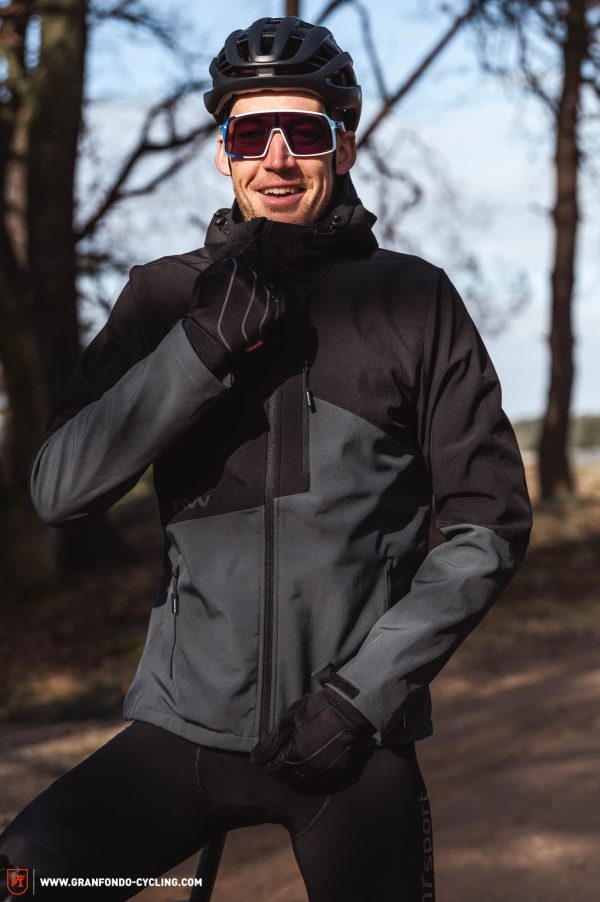
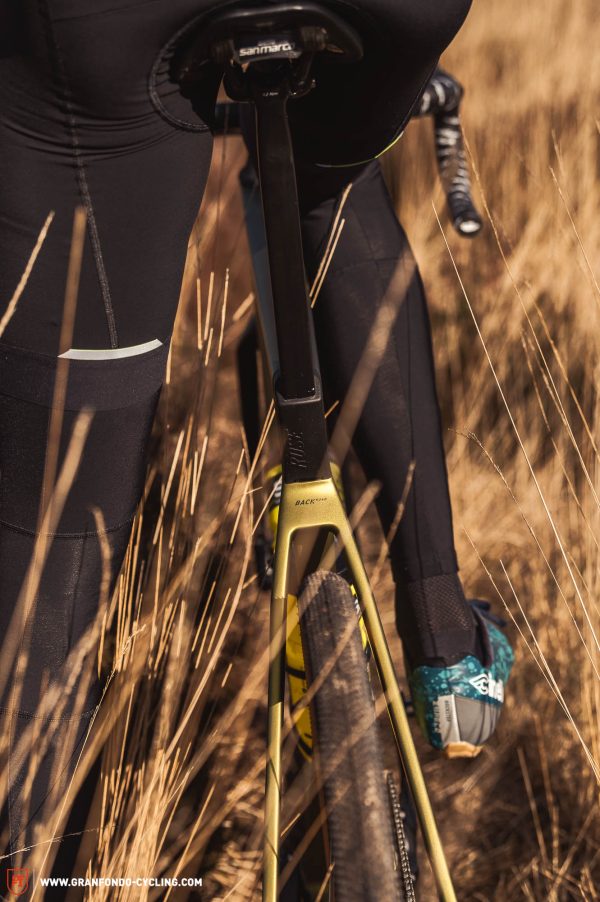
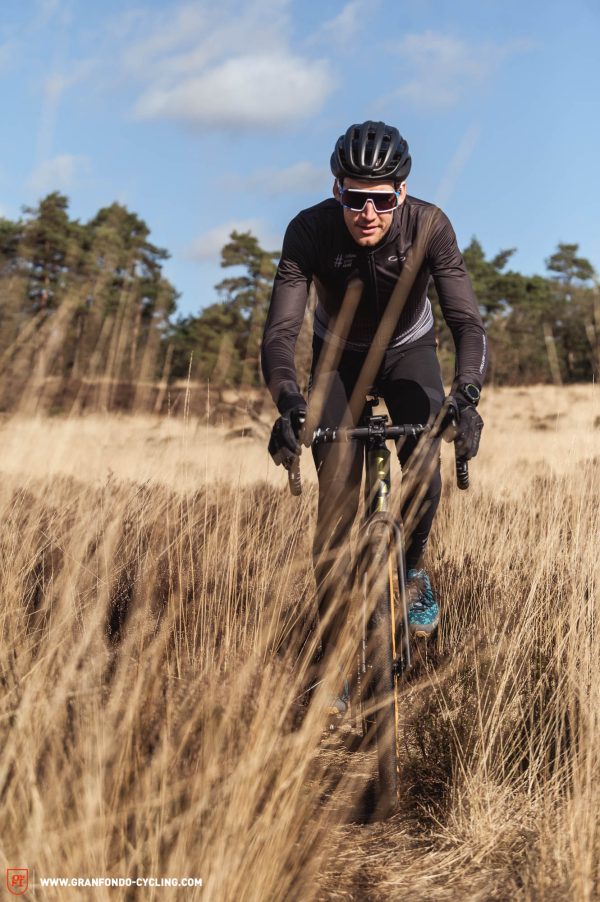
With regard to sponsorships, there’s one thing that Seb finds particularly important: “I value good and long-term relationships, such as those I was fortunate to find with ROSE, Acros and Garmin.” Just as he values his relationships, so he also values his gear. He learned this early on, at the age of 13, when his mother bought him his first road bike. “That was it,” he says. “No carbon, nothing more – I first had to show results.”
Today, Seb rides a carbon bike: the ROSE BACKROAD (review here). We want to know more about it, and it happened to be on Seb’s mind just recently. “Yesterday, on my training ride, I thought about it and said to myself: the BACKROAD is the best tool I’ve ever had as a bike.” He emphasises the word tool and explains: “It’s just that the BACKROAD performs reliably. The geometry is good and it’s robust. You can almost ride it like a mountain bike on every kind of terrain, without worrying about something rattling, the cranks snapping off, cables getting damaged or anything breaking. I just feel comfortable and safe on a bike when it’s this bombproof and well-thought-out. Of course, I also need a certain amount of tire clearance, 40 mm and above, and bottle cage bosses.”
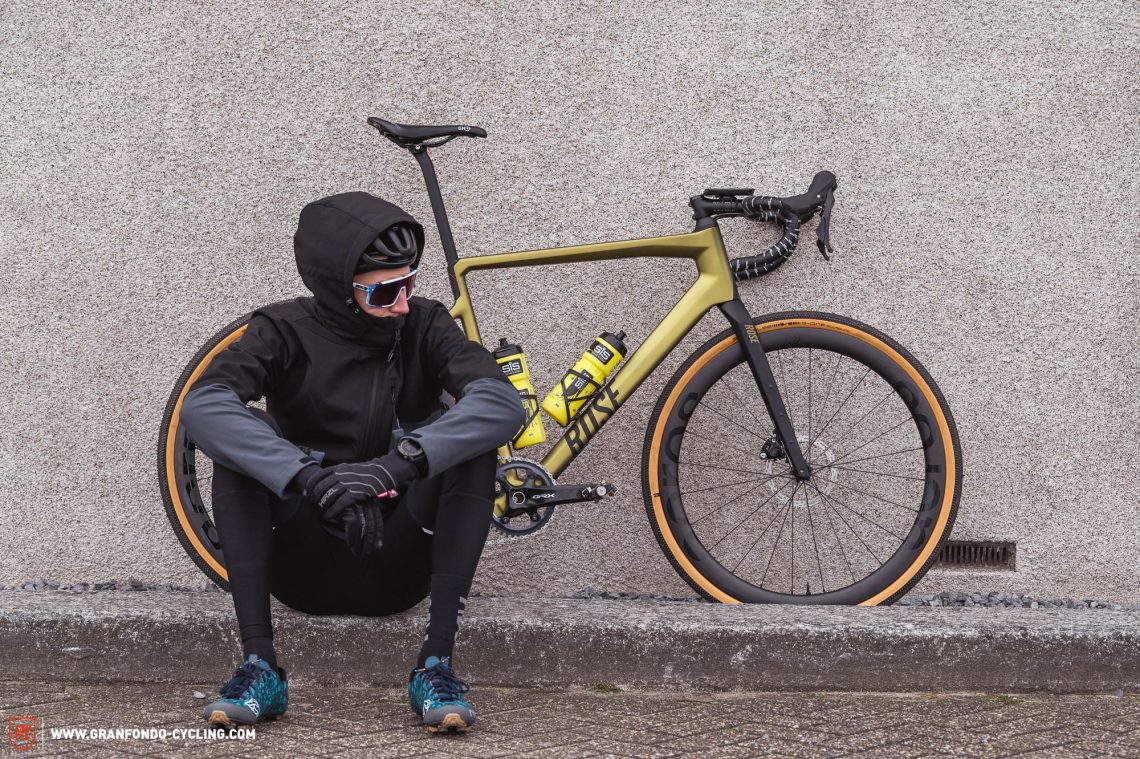
We ask, where else are we bound to see Seb riding? “For the immediate future, I’ve set my sights on the Transcontinental Race and Badlands. In the longer term, I’ll be competing in the Silk Road Mountain Race and Atlas Mountain Race, for which I’ve already registered. But I’m also thinking about doing the Belgian Waffle Ride in Utah. It’s not set in stone. There’s even a mountain bike race that I could imagine myself taking part in, the Stages Cycling Leadville Trail 100 MTB in Colorado. The most important thing is that it’s long and that I’ll get to experience freedom and adventure.”
Meanwhile, after the article appeared here, Seb competed in the 2022 Transcontinental Race. See also the video:
One thing’s clear, the gravel scene just keeps gaining momentum – both among athletes and the general public. Originating in the USA, the sport initially attracted riders with its easy going atmosphere free of professionalism and conventions, though that’s all starting to change. Only time will tell what direction it will ultimately take, but, like Seb, we appreciate the diversity of cycling.
We wish Seb all the best and continued success for all his endeavours!
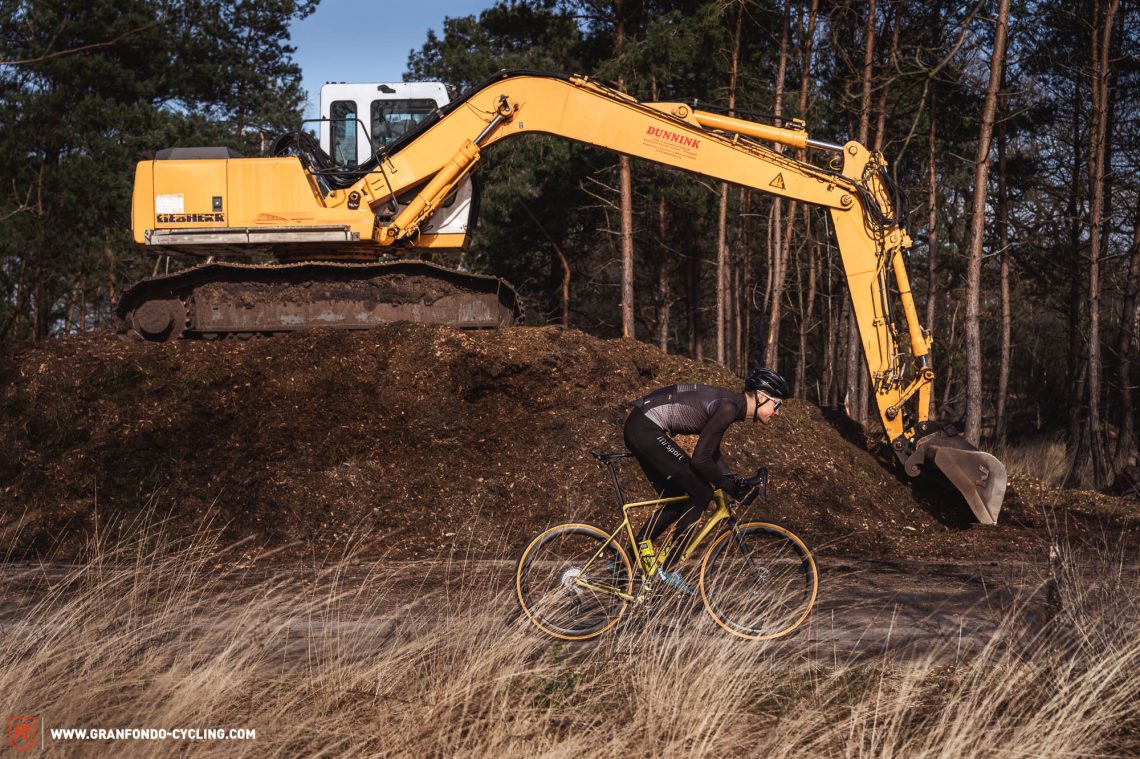
Did you enjoy this article? If so, we would be stoked if you decide to support us with a monthly contribution. By becoming a supporter of GRAN FONDO, you will help secure a sustainable future for high-quality cycling journalism. Click here to learn more.
Words: Simone Giesler Photos: Nils Laengner


